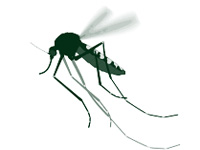To save the planet, first save elephants
Wiping out all of Africa’s elephants could accelerate Earth’s climate crisis by allowing 7% more damaging greenhouse gases into the atmosphere, scientists say. But conserving forest elephants may reverse
Wiping out all of Africa’s elephants could accelerate Earth’s climate crisis by allowing 7% more damaging greenhouse gases into the atmosphere, scientists say. But conserving forest elephants may reverse
Korean scientists have developed a new way to cut down on the number of cases of food poisoning in the world – a portable laser system that can detect bacteria on food in just a few seconds. According

Arctic sea ice appears to have reached a record low winter-time maximum extent for the second year in a row, according to NASA scientists. The new record low follows record high temperatures in December,
Scientists have declared that key portions of the Great Barrier Reef — over a thousand miles long and the “largest living structure on the planet,” according to Australia’s Great Barrier Reef Marine Park
Average sea levels are rising faster in China's coastal region than most other places in the world, affecting the coastal environment in various ways, the national marine authority said. Instead of only
Zimbabwe continues to choke under the burden of diseases like Aids and cancer, but very little has been documented on the use and properties of complementary and alternative therapies. While the bulk
Australian scientists managing the Great Barrier Reef have lifted their emergency response to the highest level following the publication of video footage of damage caused by coral bleaching. Authorities
A new scientific study released Thursday has delivered yet another burst of bad news about Greenland — the vast northern ice sheet that contains 20 feet of potential sea level rise. The ice sheet is “darkening,”

French scientists say they have proved a link between the Zika virus and a nerve syndrome called Guillain-Barre, suggesting countries hit by the Zika epidemic will see a rise in cases of the serious neurological

Harvard scientists have designed a new material inspired by organisms such as cacti, pitcher plants and desert beetles that can effectively harvest water from thin air. The research is the first step towards
A group of scientists believe that the key to effective biomass conversion lies in the stomachs of cows and elephants, with new research revealing that mimicking the digestive systems of these animals